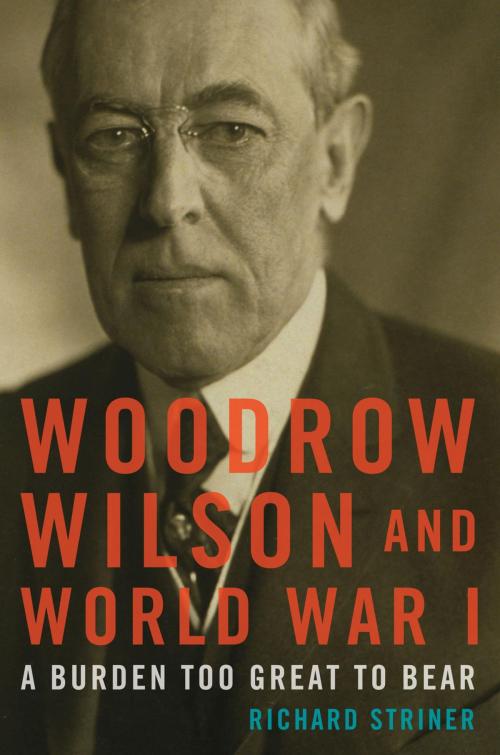Woodrow Wilson and World War I
A Burden Too Great to Bear
Nonfiction, History, Military, World War I, Americas, United States, 20th Century| Author: | Richard Striner | ISBN: | 9781442229389 |
| Publisher: | Rowman & Littlefield Publishers | Publication: | March 21, 2014 |
| Imprint: | Rowman & Littlefield Publishers | Language: | English |
| Author: | Richard Striner |
| ISBN: | 9781442229389 |
| Publisher: | Rowman & Littlefield Publishers |
| Publication: | March 21, 2014 |
| Imprint: | Rowman & Littlefield Publishers |
| Language: | English |
This book is a story of Presidential failure, a chronicle of Woodrow Wilson’s miscalculations in war, and a harrowing account of the process through which an intelligent American leader fell to pieces under a burden he could not bear. Historian Richard Striner argues persuasively that President Woodrow Wilson failed his responsibilities as a wartime leader in World War I. With the patience of a prosecuting attorney, Striner presents the facts of Wilson’s wartime situation, considers the options that were open to him, explains his decision-making process, and then critiques his failure to engage in sufficient contingency planning as events played out. Striner interweaves narration, analytical commentary, and quotations from Wilson’s advisors and contemporaries to convey the feeling of history as sensed by the people who were making it. Striner argues that as America entered the war, Wilson’s character flaws emerged, worsened by medical conditions that clinicians have diagnosed as having reached the point of dementia by 1919. This tragic story of presidential leadership failure will be of interest to all readers of America’s military history and the American presidency.
This book is a story of Presidential failure, a chronicle of Woodrow Wilson’s miscalculations in war, and a harrowing account of the process through which an intelligent American leader fell to pieces under a burden he could not bear. Historian Richard Striner argues persuasively that President Woodrow Wilson failed his responsibilities as a wartime leader in World War I. With the patience of a prosecuting attorney, Striner presents the facts of Wilson’s wartime situation, considers the options that were open to him, explains his decision-making process, and then critiques his failure to engage in sufficient contingency planning as events played out. Striner interweaves narration, analytical commentary, and quotations from Wilson’s advisors and contemporaries to convey the feeling of history as sensed by the people who were making it. Striner argues that as America entered the war, Wilson’s character flaws emerged, worsened by medical conditions that clinicians have diagnosed as having reached the point of dementia by 1919. This tragic story of presidential leadership failure will be of interest to all readers of America’s military history and the American presidency.















